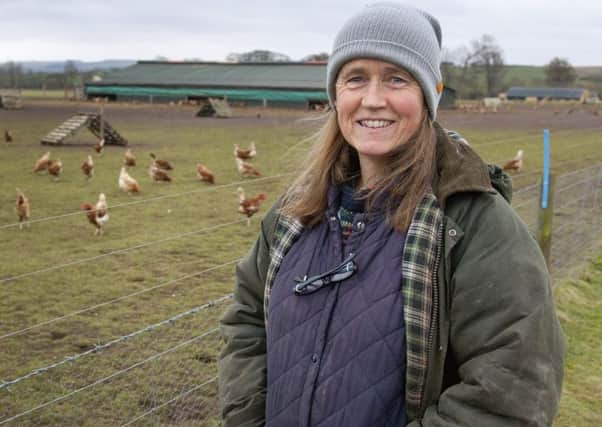Borders poultry farmers told to keep birds indoors


The Scottish Government has declared an avian influenza prevention zone, meaning that all poultry and captive birds should be kept separate from wild birds.
That move comes after a type of avian flu, H5N8, was found in dead wild birds in countries across Europe.
Advertisement
Hide AdAdvertisement
Hide AdAlthough no cases have been reported in the UK, poultry farmers have been ordered to keep their birds inside and separate from wild birds.
It will be the first time that organic poultry farmer Anne Rae, of Ednam West Mains, near Kelso, has faced such an edict, and implementing it across her 4,000 hens, with a further 4,000 in rearing, will be a challenge, she said.
She has worked with poultry since 2004, but Anne and her team have never come been affected by a move such as this until now.
She said: “We have had warning before, but this has never happened before, but it’s just what we have to do.
“If it keeps my hens safe, then we’ll just get on with it.
Advertisement
Hide AdAdvertisement
Hide Ad“We are going to find it hard, but we will give them as much enlivening as we can and hope that it will go well.
“My older birds are very good rangers, so they are going to find it very hard. We are going to have to work with them more to provide them with another distraction.”
Anne supplies eggs to supermarket chain Waitrose via Stonegate, and while that is not affected for now, she is aware that should the virus reach Scotland, protection measures could tighten.
“It is a concern at the very edge of my mind,” she said. “I will worry when it comes to Britain.”
Advertisement
Hide AdAdvertisement
Hide AdThe UK Government’s chief vet professor, Nigel Gibbens, said: “While no cases have been found in the UK, and the Public Health Executive advises that the public health threat is low, we are closely monitoring the situation across Europe and have scaled up surveillance in response to the heightened risk.
“Even when birds are housed, a risk of infection remains, so this must be coupled with good biosecurity – for example, disinfecting clothing and equipment, reducing poultry movement and minimising contact between poultry and wild birds.”
Poultry keepers are being advised to be alert for signs of bird flu and to call a vet promptly if they are concerned.